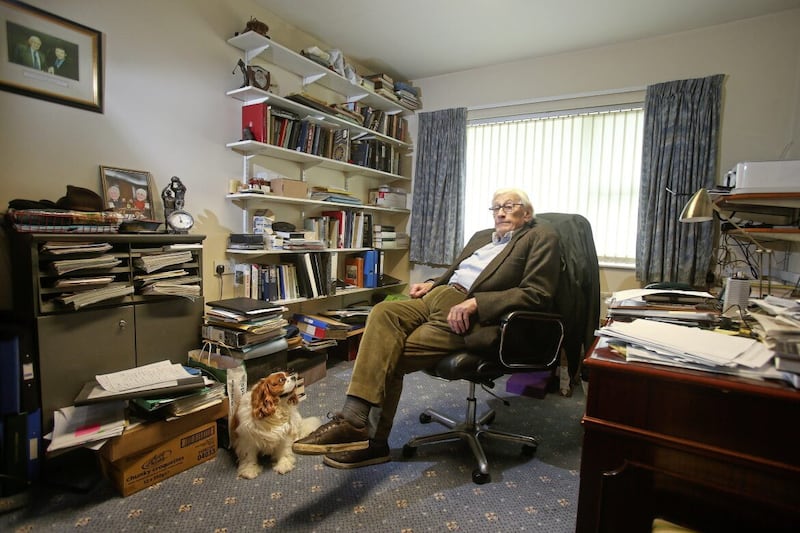When Seamus Mallon memorably described the 1998 Good Friday Agreement as `Sunningdale for slow learners’, he neatly captured the inability of some politicians to understand stark and simple truths.
However, even Mr Mallon, with his gift for a telling phrase, might struggle to sum up the glaring contradictions in the position of the DUP over recent months.
Many of the party’s most faithful supporters must have been bemused when their leaders solemnly spoke yesterday of their growing fears that the Brexit negotiations could lead to the final break-up of the United Kingdom.
The logic behind the DUP’s decision to firmly endorse the Leave campaign in the 2016 referendum was that a withdrawal was strongly desirable, and would allegedly copper-fasten the union, even though voters in both Scotland and Northern Ireland took a completely different view.
Party strategists then claimed they had been handed a further massive boost when the British general election of the following year resulted in a hung parliament and the much discussed `confidence and supply’ deal between the DUP and the Conservatives.
According to the DUP, it was left with unprecedented influence at Westminster and would be able to shape the overall direction of the UK’s pending divorce from the EU.
Slowly but surely, it all unravelled as it began to dawn on the DUP that its relationship with the Tories was purely based on short-term expediency and would end in tears.
A defining moment arrived last night when the details of Theresa May’s draft agreement with the EU started to emerge and all the indications were that what will effectively be special arrangements for Northern Ireland are to be put in place.
The DUP’s attempts to insist that it could never accept a separate approach across the Irish Sea looked feeble after its previous determination to ensure that British legislation over language issues, human rights and defamation was not extended to Stormont.
Brexit was always going to be a disaster for all sections of our society and it is now dawning on the DUP that it will result in a catastrophe of historic proportions for unionism in particular.
The border has been propelled to the top of the political agenda not just in Ireland but internationally, with 26 other EU states lining up behind the measured arguments of the Dublin government.
None of this is going to turn out well for the DUP, and its ordinary members, including the slowest of learners in their ranks, must surely wish that they could turn the clock back and reverse their approach to the 2016 poll.






